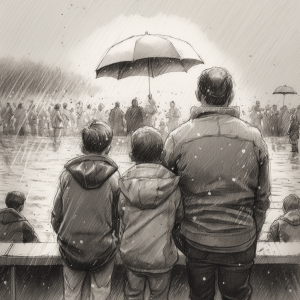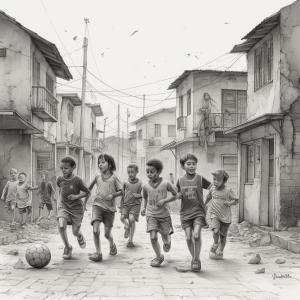As I’ve stated before, coaching young children has little to do with winning. Coaching young players should be about organising the players for fun, learning and helping them to develop both as players and people. Do you think the children at a very young age care about winning? When they play in the streets and at the park, do they play solely to win? They play because its fun and it gets them active and a chance to socialise with their new friends.
A survey was conducted in 1987 by the Australian Sports Commission- They interviewed and surveyed young children that were participating in the game of soccer. The questions varied, but here are some crucial questions asked.
- What do you enjoy about participating in sport (soccer)? The answers were provided so they had to select the most appropriate and place them in order.
- Improving their skills.
- Playing the game.
- Having a good relationship with the coach.
- Playing in the team (not sitting on the bench).
- Being with friends
- Having an exciting close game.
- Competing and trying to win.
- Wearing the correct uniform and gear.
- Beating their opponents.
- Winning medals or trophies.
- Children were asked to complete the sentence, “The most important thing about soccer is…….”. The children answered by placing the following statements in their specific order
- To play as well as you are able.
- To have fun.
- To be fair.
- To beat your opponent.
- Children care and feel strongly that:
- All players in the team should have an equal opportunity to play in matches.
- It is more important for all players to play than for the team to win.
- Learning to play the game is much more important than winning matches.
- If the children were allowed to give some advice to the coach, this is what they would say…..
- Don’t yell so much.
- Teach us more.
- We want more involvement.
- Let us express ourselves.
- Encourage us more.
Throughout this case study it is clearly evident what the children want. The common theme from all the answers was, the children wanted to improve their skill and develop as players. They wanted to be active and have fun with their friends, rather than win soccer matches. So whats the problem and the main reason why children stop playing the game they love?
In countries, such as Australia, soccer is not seen as the number one sport and the children don’t organise themselves as much and the game has developed in a more structured manner based on an adult system. The problem stems from the high level of adult involvement! Can you tell me why this is a problem? Above we have the answers to why children play soccer, straight from the children’s mouth. Adults, although with the best intentions, apply pressure to their children and enforce an adult definition of success. Success can have many definitions and outcomes, but in this case, “you are successful as a coach and as a player only if you are winning games.
“Winning games!” The children aren’t worried about winning games at a young age. Check the above list, it ranks last in every question. There is nothing wrong with winning, but having this as the sole criteria and objective in junior soccer is very limiting and harmful. Do you ever wonder why parents yell and scream abuse at junior soccer games? When winning is the only objective, it leads to some of the ugliest scenes in junior soccer, such as hysterical and abusive shouting by both coaches and parents and even club officials.
When children are exposed to abuse like this it results in too much pressure being placed on them. What was supposed to be fun and enjoyable, now becomes scary and highly emotional. The drop out rate from junior soccer is far too high and this is due to the over emphasise placed on winning games combined with the bad behaviour of coaches and parents.
Just remember next time your watching junior soccer, the children playing are not little adults. What they want is clear for everyone to see. Read through their answers again and try to enjoy the experience.



Leave a Reply